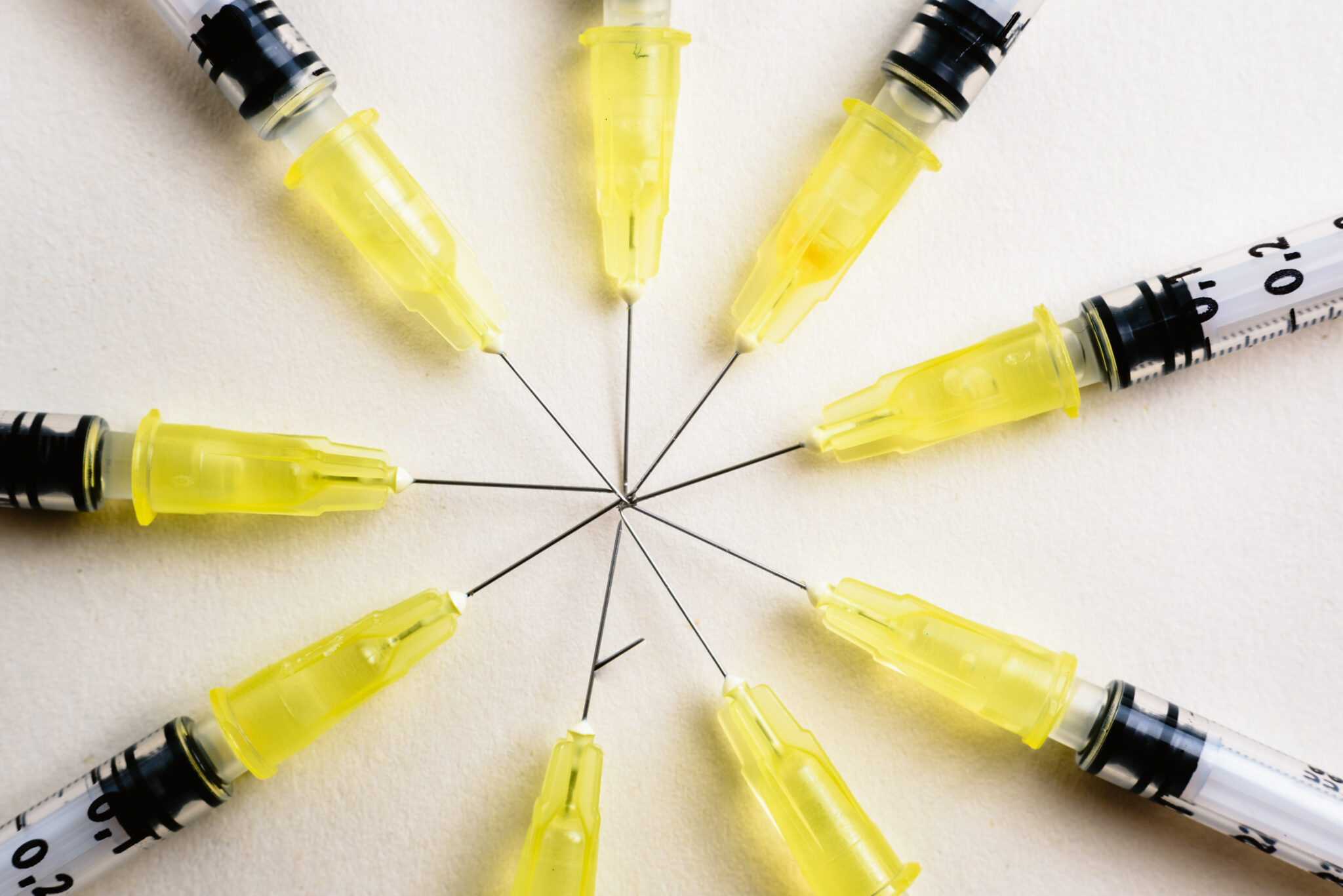When it comes to vaginal health, many of us notice changes in odor but feel too embarrassed to talk about it. The truth is, your vagina has its own unique scent that can change throughout your menstrual cycle, after sex, or when something’s not quite right. Understanding these scents can help you know when everything’s normal and when it might be time to see a doctor.
Let’s break down the common vaginal odors, what causes them, and what you can do about them—all without judgment and with practical advice you can actually use.
Key Takeaways
- A healthy vagina naturally has some odor that may change throughout your menstrual cycle
- Strong or unusual odors often signal an infection or pH imbalance that might need treatment
- Certain habits like douching can disrupt your vaginal microbiome and make odors worse
- Simple lifestyle changes can help maintain vaginal health and reduce unwanted odors
Understanding Your Normal Vaginal Odor
Every vagina has its own natural scent. Your unique smell comes from the mix of good bacteria that live in your vagina, called your vaginal microbiome. Just like your gut has a healthy balance of bacteria, so does your vagina.
Many women describe their healthy vaginal scent as slightly musky or sometimes a bit sweet, but a healthy vagina shouldn’t smell like a flower garden. It should smell like a vagina. So, if you’ve worried that your natural scent isn’t “fresh” enough, you can relax—your body isn’t supposed to smell like perfume or soap.
Factors That Affect Your Vaginal Scent
- Hormonal changes: During different parts of your cycle, hormone fluctuations can change your scent
- Diet: Foods like garlic, onions, and strong spices can affect body odor, including vaginal odor
- Exercise and sweat: Sweat from your sweat glands mixes with vaginal secretions
- Sexual activity: Semen can change your pH balance temporarily
- Clothing choices: Tight, non-breathable fabrics trap moisture and affect odor
- Hygiene habits: Over-washing can actually make odors worse by disrupting your natural balance
7 Common Vaginal Odors and What They Mean
Let’s dive into the common vaginal odors you might notice and what they could be telling you about your health.
Musky Odor
Odor: Slightly earthy or like how your armpits might smell after light exercise.
Meaning: This is completely normal! A light musky scent is just your body’s natural odor, especially after physical activity when you’ve been sweating. The scent comes from sweat mixing with your natural vaginal secretions.
When to check with a doctor: You generally don’t need to worry about a mild musky scent. But if it suddenly becomes much stronger or bothers you, a check-up can’t hurt.
Self-care tips:
- Wear breathable, cotton underwear
- Change out of sweaty clothes promptly after exercise
- Wash your external genital area with warm water (soap isn’t necessary and can disrupt your pH)
Slightly Sweet Odor
Smells like: A mild, pleasant sweetness that’s barely noticeable.
Meaning: This is another variation of normal! Some women naturally have a slightly sweet vaginal scent, which can vary throughout their menstrual cycle. It’s often most noticeable around ovulation.
When to check with a doctor: A mild sweet smell isn’t cause for concern.
Self-care tips:
- Track your cycle to understand your body’s patterns
- Maintain regular hygiene with gentle cleansing of external areas only
- Stay hydrated, which helps maintain overall body health
Fishy Odor
Smells like: A distinct fishy smell, often stronger after sex or during your period.
Meaning: A fishy odor often signals bacterial vaginosis (BV), the most common vaginal infection for women ages 15-44. BV happens when there’s an imbalance in your vaginal bacteria—too much of certain types and not enough of the good bacteria called lactobacilli. A fishy odor could also indicate trichomoniasis, a common STI. Unlike BV, “trich” often comes with other symptoms like itching, burning, and uncomfortable urination.

When to check with a doctor: If you notice a fishy smell, especially with thin, gray, white, or green discharge, see your healthcare provider. BV usually needs treatment with antibiotics to restore your vaginal balance. Self-care tips:
- Avoid douching, which worsens bacterial imbalance
- Use condoms during sex, as semen can trigger BV in some women
- Take all prescribed antibiotics even if symptoms improve
- Consider probiotic supplements specifically for vaginal health
Yeasty Odor (Like Bread or Beer)
Odor: Similar to bread dough, beer, or baking goods.
Meaning: This scent often points to a yeast infection, caused by an overgrowth of Candida fungus. Yeast naturally lives in your vagina in small amounts, but can multiply too quickly when the environment changes.
When to check with a doctor: If you have a yeasty smell plus thick, white discharge (often described as cottage cheese-like), itching, burning, or redness, you might have a yeast infection. While over-the-counter treatments and home remedies work for many, see a doctor if:
- It’s your first yeast infection
- Symptoms don’t improve with OTC treatment
- You get yeast infections frequently (4+ times per year)
- You’re pregnant
Self-care tips:
- Wear loose-fitting cotton underwear
- Avoid sitting in wet swimwear or workout clothes
- Limit sugar in your diet, which can feed yeast
- Consider taking probiotics that support vaginal health
Metallic Odor
Odor: Like pennies, metal, or copper.
Meaning: A metallic smell is commonly associated with blood, so you might notice it during or after your period. You might also detect this scent after sex that caused minor irritation or tiny tears in vaginal tissue.
When to check with a doctor: A metallic smell around your period is normal. But if you notice this smell with unexpected bleeding or after menopause, check with your doctor.
Self-care tips:
- Change tampons or pads regularly during your period
- Try a menstrual cup, which some women report causes less odor than tampons or pads
- Use lubrication during sex to prevent microabrasions that can cause bleeding
- Stay hydrated to maintain healthy mucous membranes
Rotten or Foul Odor
Odor: A strong, unpleasant smell that might remind you of rotting food or something similarly foul.
Meaning: A truly foul odor can signal a serious condition called pelvic inflammatory disease (PID), or it could mean there’s a forgotten tampon or other foreign object in your vagina.
When to check with a doctor: If you notice a foul smell with a fever, abdominal pain, or unusual discharge, see a doctor. If it is a forgotten tampon, doctors can safely remove it. (Don’t be embarrassed! Forgotten tampons are more common than expected and is nothing new to doctors.)
Self-care tips:
- Set reminders to remove tampons
- Consider switching to menstrual products that don’t have this risk, like pads or menstrual cups
- If you suspect PID, get tested regularly for STIs if you’re sexually active
Ammonia-like Odor
Smells like: Cleaning products or cat urine.
Meaning: An ammonia smell often means that urine is mixing with your vaginal scent. Common causes are:
- Mild dehydration concentrating your urine
- Small amounts of urine leakage (stress incontinence)
- Urinary tract infections (UTIs)
When to check with a doctor: If the ammonia smell comes with burning during urination, cloudy urine, or frequent urge to pee, you might have a UTI that needs treatment. Also see a doctor if you’re experiencing regular urine leakage that affects your quality of life.
Self-care tips:
- Stay hydrated
- Urinate after sex to help prevent UTIs
- Wipe from front to back after using the bathroom
- Consider pelvic floor exercises if you experience stress incontinence
- Wear a panty liner if you experience minor urine leakage
Other Vaginal Odors You Might Notice
- Skunky or Body Odor-like: Sweat from your apocrine glands mixes with bacteria on your skin. Common during intense exercise, stress, or when wearing non-breathable fabrics for too long. Breathable clothes and showering after exercise are easy home-remedies for this scent.
- Chlorine-like (After Swimming or Sex): If you notice a bleach or swimming pool-like smell, it’s likely from chlorine exposure from a pool or hot tub. This smell is temporary and should fade after showering. You might also notice a similar smell after sex, as semen has a slight chlorine-like scent that can temporarily affect your vaginal odor.
When to See a Healthcare Provider
Variations in vaginal odor are normal, certain signs should prompt a doctor’s visit:
- Persistent strong odor that doesn’t go away with gentle washing
- Sudden change in your normal odor, especially with other symptoms
- Unusual discharge (change in color, consistency, or amount)
- Itching, burning, or pain in your vaginal area
- Pain during sex or urination
- Unexpected bleeding or spotting
- Any odor that worries you, even if you don’t have other symptoms
Maintaining Healthy Vaginal Odor
Do’s and Don’ts for Vaginal Health
Do:
- Wash your vulva (external genital area) with warm water or a pH-balanced cleanser
- Wear breathable cotton underwear
- Avoid wearing wet or sweaty clothes
- Wipe from front to back after using the bathroom
- Stay hydrated and eat a balanced diet
- Change tampons and pads regularly during your period
Don’t:
- Douche or use vaginal deodorants/sprays
- Use scented soaps, bubble baths, or body washes in your genital area
- Wear tight synthetic underwear for long periods
- Use scented tampons or pads
- Wash inside your vagina (it’s self-cleaning!)
Lifestyle Factors That Affect Vaginal Odor
Your daily habits can significantly impact your vaginal health:
- Diet: Foods like garlic, onions, and strong spices can temporarily affect your natural scent. Probiotics found in yogurt and fermented foods might help maintain healthy vaginal bacteria.
- Hydration: Drinking enough water helps flush toxins from your body and keeps mucous membranes healthy.
- Stress management: High stress can affect your hormonal balance and immune system, potentially impacting vaginal health. Regular stress-reduction activities like yoga, meditation, or whatever helps you relax can benefit your overall health, including vaginal health.
- Sexual hygiene: Urinating after sex, using condoms to prevent infection, and washing the external genital area after sexual activity can all help maintain vaginal health.
Natural Home Remedies for Vaginal Odor
While medical treatment is necessary for infections, some natural approaches may help support overall vaginal health:
- Probiotics: Some studies suggest that oral or vaginal probiotics containing Lactobacillus species may help maintain healthy vaginal flora. Look for supplements specifically formulated for vaginal health.
- Cotton underwear: Breathable fabrics reduce moisture and discourage bacterial overgrowth.
- Apple cider vinegar baths: Adding a cup of apple cider vinegar to a warm bath may help balance vaginal pH. Don’t apply vinegar directly to your vagina, though!
- Tea tree oil: When diluted and used externally, tea tree oil has antimicrobial properties. But be careful—undiluted essential oils can cause irritation.
- Diet changes: Reducing sugar intake may help prevent yeast overgrowth, while eating yogurt with live cultures might support vaginal health.
Vaginal Odor During Pregnancy and Beyond
During Pregnancy
Pregnancy increases blood flow to your genital area and changes your hormone levels, which might make your normal vaginal odor stronger. You’re also more susceptible to yeast infections and BV during pregnancy.
Don’t self-treat—talk to your healthcare provider, as some conditions need specific treatments that are safe during pregnancy.
Postpartum Changes
After childbirth, you’ll experience lochia—discharge that can last for several weeks as your uterus heals. This discharge has its own odor that changes over time, typically starting with a fresh blood smell and eventually becoming mustier. Breastfeeding can also affect your vaginal environment due to lower estrogen levels, sometimes leading to vaginal dryness and changes in odor.
Menopause and Perimenopause
As estrogen levels decline during perimenopause and menopause, your vaginal pH becomes less acidic, which can change your natural scent and make you more vulnerable to infections.
Hormone replacement therapy or vaginal estrogen can help with these changes for many women.
Talking to Your Partner About Vaginal Odor
Concerns about vaginal odor can affect intimacy and self-confidence. Here are some tips for navigating these conversations:
- Remember it’s normal: Everyone has body odors. A supportive partner should understand this.
- Choose a neutral time: Don’t bring it up during or right before intimacy.
- Be direct but positive: “I’ve noticed some changes in my body’s scent, and I’m checking it out with my doctor. I wanted you to know in case you noticed too.”
- Involve your partner in solutions: “Would you mind if we shower together before sex? It helps me feel more comfortable.”
FAQs
Why does my vagina smell different after sex?
Semen has a pH of around 7.0-8.0, while your vagina is naturally more acidic (pH 3.8-4.5). When semen enters your vagina, it temporarily raises your pH, which can affect your smell for up to 24 hours. Using condoms can prevent this pH shift if you find it bothersome.
Can what I eat affect how my vagina smells?
Just like certain foods can affect your breath or sweat odor, they can also subtly influence your vaginal scent. Foods like garlic, onions, strong spices, alcohol, and red meat might temporarily alter your natural aroma.
Is it normal for my vaginal odor to change throughout my menstrual cycle?
Absolutely. Hormone fluctuations throughout your cycle affect your vaginal pH and secretions. Many women notice their scent is strongest during or just after their period, milder after menstruation, and sometimes slightly sweeter around ovulation. Tracking these changes can help you recognize your own normal patterns.
Can other people smell my vaginal odor through my clothes?
Your natural vaginal scent isn’t typically strong enough to be noticed through clothing, unless you have an infection causing a very strong odor or haven’t changed clothes after significant sweating. Regular showers and clean underwear are usually all you need for day-to-day freshness.
How can I tell the difference between a normal odor and an infection?
Vaginal odors are usually mild and aren’t accompanied by other symptoms. Indications of infection include:
- Sudden changes in odor
- Fishy, foul, or yeasty smells
- Unusual discharge
- Itching, burning, or irritation
- Pain during urination or sex
- Redness or swelling
If you experience these symptoms along with odor changes, it’s best to see a healthcare provider.
Does douching help with vaginal odor?
No—in fact, douching often makes odor worse in the long run. Your vagina is self-cleaning and maintains a delicate balance of bacteria. Douching disrupts this balance, washing away good bacteria and potentially pushing harmful bacteria deeper into your reproductive tract.
When should I be concerned about vaginal odor during pregnancy?
While a stronger smell is common during pregnancy due to increased blood flow and hormonal changes, certain odors warrant medical attention. A fishy, foul, or very unpleasant odor, especially with unusual discharge, itching, or pain, could indicate an infection. Untreated vaginal infections during pregnancy can increase risks for complications, so always check with your prenatal care provider about concerns.
Conclusion
Most vaginal odors are either normal variations or signals of common, treatable conditions. Remember—vaginas aren’t supposed to smell like flowers or perfume. They’re supposed to smell like vaginas! Embracing this natural reality can help build confidence and reduce unnecessary anxiety about your body.
If you’re concerned about your vaginal odor, don’t hesitate to talk to a healthcare provider. They’ve heard it all before, and they’re there to help you maintain your vaginal health in a judgment-free way.
Sources
Ravel, J., et al. (2022). The vaginal microbiome: rethinking health and disease. Annual Review of Microbiology, 65, 349-369. https://www.ncbi.nlm.nih.gov/pmc/articles/PMC3758214/
American College of Obstetricians and Gynecologists. (2022). Vulvovaginal Health. https://www.acog.org/womens-health/faqs/vulvovaginal-health
Cleveland Clinic. Vaginal Odor. https://www.cuimc.columbia.edu/news/understanding-vaginal-odor
Mayo Clinic. (2023). Vaginal odor: When to see a doctor. https://www.mayoclinic.org/symptoms/vaginal-odor/basics/when-to-see-doctor/sym-20050664
Centers for Disease Control and Prevention. (2022). Bacterial Vaginosis – CDC Fact Sheet. https://www.cdc.gov/std/bv/stdfact-bacterial-vaginosis.htm
Koumans, E. H., et al. (2023). The prevalence of bacterial vaginosis in the United States, 2001-2004; associations with symptoms, sexual behaviors, and reproductive health. Sexually Transmitted Diseases, 34(11), 864-869. https://pubmed.ncbi.nlm.nih.gov/17621244/
Centers for Disease Control and Prevention. Trichomoniasis – CDC Fact Sheet. https://www.cdc.gov/std/trichomonas/stdfact-trichomoniasis.htm
Vaginal yeast infections. U.S. Department of Health and Human Services. https://www.womenshealth.gov/a-z-topics/vaginal-yeast-infections
Vaginal Foreign Body Evaluation and Treatment. Journal of Emergency Medicine, 40(3), 347-349. https://www.ncbi.nlm.nih.gov/books/NBK549794/
American Pregnancy Association. (2023). Vaginal Discharge During Pregnancy. https://americanpregnancy.org/healthy-pregnancy/pregnancy-health-wellness/vaginal-discharge-during-pregnancy/






